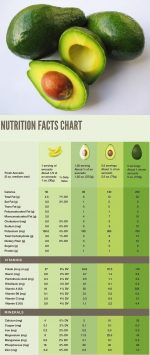
https://igcdn-photos-h-a.akamaihd.net/hphotos-ak-xaf1/t51.2885-15/11427412_885212888218223_2006916889_n.jpg
There’s a simple way to stop eating mindlessly: Pause before you make a decision. Pausing assures that you have a chance at exercising choice rather than being a victim of impulse. Now, what does that mean exactly?
Without pausing (it can be for as little as 3 seconds) you are essentially on automatic drive. You are acting out of the body’s desire rather than your well-being. Sometimes those two are aligned (what your body wants and what your well-being requires) and sometimes they’re not. When it comes to food they’re mostly not.
Pausing doesn’t mean saying no to a food you crave. In fact, I often indulge after pausing because the pause helped me understand that indulging in this particular food at this particular time was the right thing to do. See, pausing and reflecting often arrive at the same conclusion as impulse and urge. But at least you’re CHOOSING the indulge rather than being at the mercy of it.
Of course pausing alone isn’t helpful. It’s what you do with that pause that makes the difference. For me, that pause allows me to ask two questions: How badly do I want the food? And am I willing to postpone eating it until I want it a lot more than I do now.
These are important questions to ask yourself because they will lead you to the holy grail of being able to lose weight without dieting. By pausing and reflecting, eating mindfully, you will be able to completely eliminate low-craving indulgences.
Let me explain briefly what I mean. If I eat just because I have a craving for a food, well, that doesn’t give me much choice about it. That means I’m a total victim of the slightest craving. But if I can put a couple of rules around when I will yield to my cravings, then I’m at choice.
My rule is simple: Indulge when a craving is high; don’t when it’s not. Mindful eating isn’t just about being aware, but about taking appropriate action. And it’s also about not being on a diet (the definition of mindlessness, if you ask me).
I’m not the only who thinks this way. In a great article on intuitive eating, the folks at intuitiveeating.com remind us of having the right consciousness:
1. Reject the Diet Mentality Throw out the diet books and magazine articles that offer you false hope of losing weight quickly, easily, and permanently. Get angry at the lies that have led you to feel as if you were a failure every time a new diet stopped working and you gained back all of the weight. If you allow even one small hope to linger that a new and better diet might be lurking around the corner, it will prevent you from being free to rediscover Intuitive Eating.
Amen, sisters. Or brothers as the case may be. Instead of training yourself to be on a diet, train yourself on how to manage your cravings. How to indulge them gleefully and when to resist them. It’s easy to resist a low craving and extremely hard to ignore a high craving. Where the weight comes off in managing your cravings is in this factoid: Low craving eating accounts for a good deal of the calories we consume. If you can eliminate “low craving” eating (easy to do) you’ll eliminate a whole lot of calories without being on a diet.




